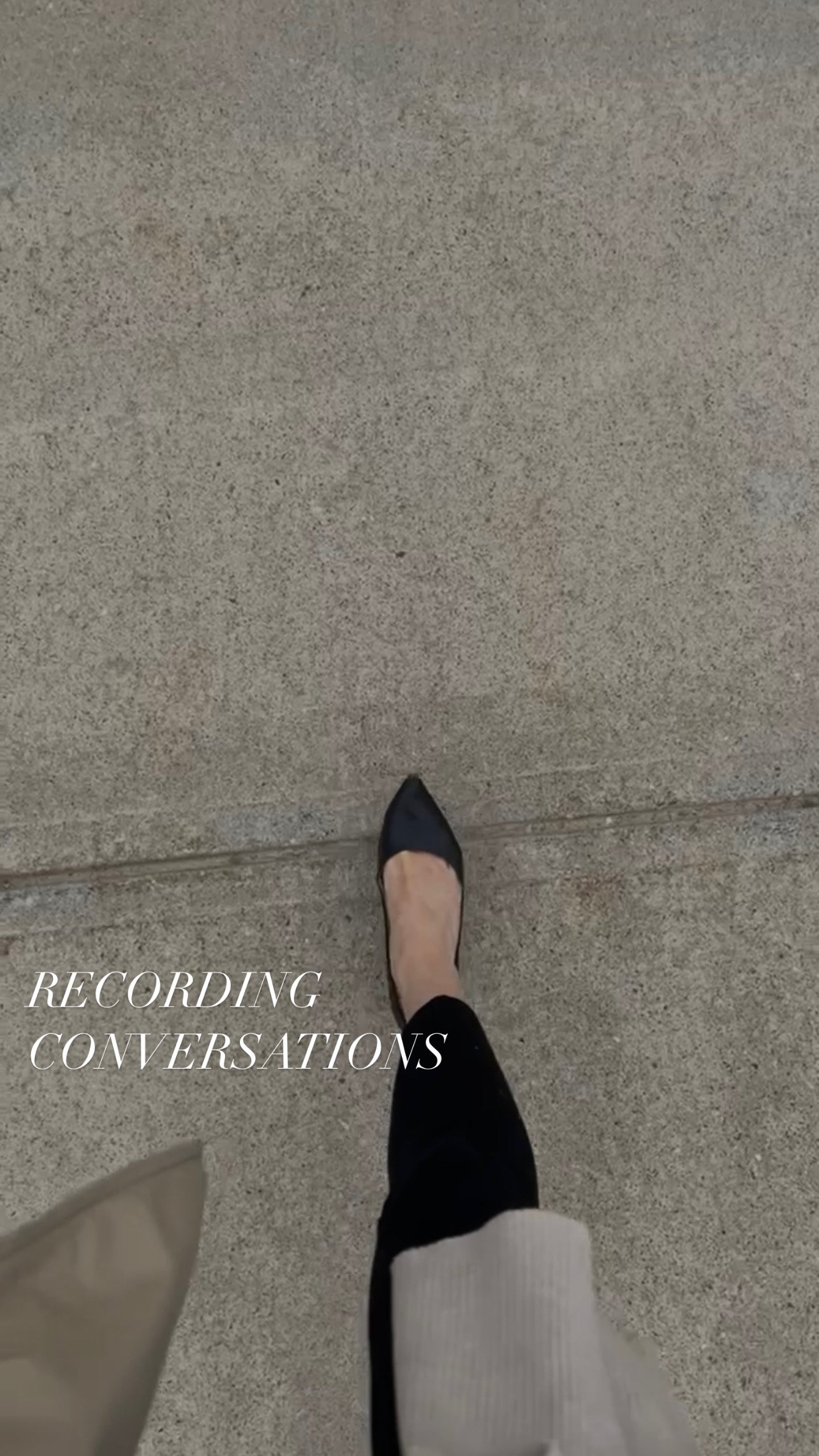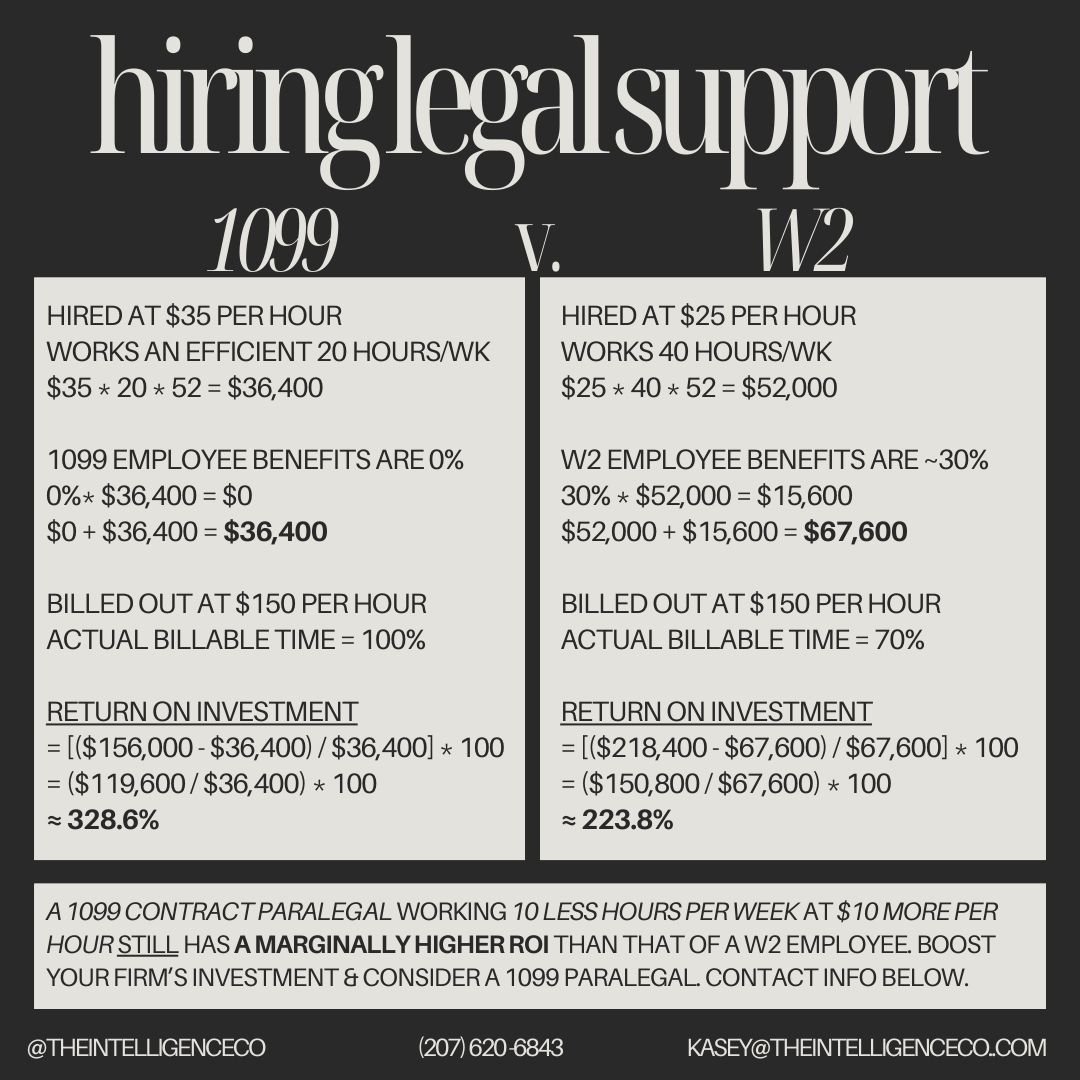
RECORDING CONVERSATIONS
Do you have issues with a current boss, an ex, a family member, a neighbor? Are you in the middle of a divorce or a child custody battle? If so, have you considered recording your conversations? You need to read this.

BEHIND THE SCENES OF A CRIMINAL INVESTIGATION
Have you ever wondered what goes on behind the scenes of a criminal investigation? Here is a look into what we do and the steps we take to conduct a thorough criminal defense investigation. It’s important to know that private investigators are not government employees—we are a private party generally hired by an attorney to act as a truth seeker and bridge the gaps in cases where facts may be missing or credibility is questioned.
01. CASE BRIEFING. Every investigation starts with a thorough case briefing. We analyze the facts, assess the evidence, and develop a strategic plan to move forward. Part of our strategy includes constructing our interview questions beforehand so not to miss any important information.
02. RESEARCH & ANALYSIS. Although not always required, we may dive deep into research, scouring through databases, public records, and witness/alleged victim history to gather crucial information that could break a case and unveil the truth.
03. DEFENDANT CALL. It is important to schedule a call with the defendant to directly address any concerns, gather their perspective, and ensure a fair and thorough investigation. We never rely on the police report. It is our job as investigators to ensure we cross our T’s and dot our I’s, and we best do so when we first speak with the client whom we are supporting.
04. SURVEILLANCE. Prior to conducting interviews, we may conduct surveillance on a party if necessary to gain insight into any potential credibility issues. Surveillance isn't generally necessary in criminal cases unless there are notable credibility issues with a key witness or alleged victim.
05. WITNESS INTERVIEWS. We speak with witnesses, victims, and anyone else who might have valuable information about the case. Building rapport and gaining trust are essential to uncovering valuable insights.
06. RECONSTRUCTING SEQUENCE OF EVENTS. Reconstructing a detailed timeline of events is a crucial step in our investigation process, allowing us to piece together the sequence of actions, identify key moments, and uncover vital evidence to support our case. This is imperative for larger cases or cases where there is question into the series of events that led up to the initial offense.
07. CONFIDENTIALITY & ETHICAL COMPLIANCE. Throughout conducting an investigation, we uphold the highest standards of confidentiality and professionalism, ensuring that sensitive information is handled with care and discretion. Our lead investigator is a licensed professional, thus, held to an ethical standard.
Stay tuned! We will be sharing more insight into the life of a private investigator. Stay tuned for updates as we pursue cases, unravel truths, and seek justice in Mid-Maine and beyond.
THE INTELLIGENCE CO.
✉️ kasey@theintelligenceco.com
📞 (207) 620-6843
🌐 www.theintelligenceco.com

What types of records can a private investigator pull?
The specific public records that a private investigator can access on an individual vary depending on the laws and regulations of the jurisdiction they operate in. However, generally, public records accessible to private investigators may include the following . . .

WHAT TO LOOK FOR WHEN SEEKING A LEGITIMATE PRIVATE INVESTIGATOR.
Reputation: Investigate the detective's reputation by checking online reviews, asking for referrals from trusted sources, or contacting professional associations. A detective with a strong reputation for discretion and professionalism is more likely to handle your case with integrity and confidentiality.
Experience: Consider the detective's experience in handling cases similar to yours. Whether it's surveillance, background checks, or infidelity investigations, hiring someone who has dealt with similar situations increases the likelihood of a successful outcome. Ask about their success rate and any notable achievements in past cases.
Licensing and Credentials: Verify that the detective holds the necessary licenses and credentials required by your state or country. Licensing requirements vary, but a licensed detective typically demonstrates adherence to legal and ethical standards in their work. Additionally, inquire about any specialized training or certifications relevant to the type of investigation you need.
Communication Skills: Effective communication is essential for a successful investigation. Choose a detective who listens attentively to your needs, asks clarifying questions, and keeps you informed throughout the process. Clear and timely updates on the progress of the investigation help you stay informed and confident in the detective's abilities.

MAINE’S DISPROPORTIONATE PERCENTAGE OF FEMALE INVESTIGATORS - IS THIS AN ADVANTAGE TO THOSE IN THE BIZ?
There are only ~164 licensed professional investigators in the State of Maine.
Did you also know that only ~22 of those investigators are female?
There are several reasons why someone might prefer to hire a female private investigator over a male counterpart:
Discretion in Sensitive Cases: In certain cases, particularly those involving personal or sensitive matters such as infidelity or harassment, clients may feel more comfortable sharing intimate details with a female investigator. They might perceive women as being more empathetic and understanding, which can foster trust and openness during consultations.
Infiltrating Certain Environments: Female investigators may have an advantage in certain investigative scenarios, such as gaining access to predominantly female spaces or situations where a male presence might attract unwanted attention. For example, in undercover operations involving clubs, spas, or social gatherings, a female investigator may blend in more naturally.
Perception of Approachability: Some clients might perceive female investigators as being less intimidating or confrontational compared to their male counterparts. This perception of approachability can facilitate smoother interactions, particularly in delicate situations where building rapport is crucial.
Cultural or Religious Considerations: In cultures or communities where interactions between genders are restricted or where modesty is valued, clients may feel more comfortable working with a female investigator. This preference ensures adherence to cultural norms and minimizes potential discomfort or misunderstandings.
Empathy and Intuition: Women are often associated with heightened emotional intelligence and intuition, which can be valuable assets in investigative work. Female investigators may be particularly adept at reading subtle cues, understanding nuanced emotions, and empathizing with clients' concerns, enhancing the overall quality of their services.
Ultimately, the decision to hire a female private investigator is a personal one, influenced by factors such as individual comfort levels, the nature of the case, and cultural or social considerations. It's essential to choose an investigator, regardless of gender, based on their qualifications, experience, and professionalism.

WHAT QUALITIES SHOULD I LOOK FOR WHEN HIRING A PRIVATE INVESTIGATOR?
Professionalism: This involves conducting oneself with integrity, adhering to ethical standards, and maintaining a high level of competency in one's work. A professional private investigator ensures confidentiality, respects boundaries, and handles sensitive information with discretion.
Trustworthiness: Clients rely on private investigators to handle their cases with honesty and reliability. Trustworthiness involves being transparent with clients, delivering on promises, and maintaining confidentiality throughout the investigation process.
Charisma: A charismatic investigator can effectively build rapport with clients and witnesses, making them feel comfortable sharing information. Charisma involves having excellent interpersonal skills, being engaging, and possessing the ability to connect with people from diverse backgrounds.
Non-threatening Demeanor: A non-threatening demeanor is essential for gaining the cooperation of witnesses and conducting covert investigations without raising suspicion. A private investigator with a non-threatening demeanor can blend into various environments seamlessly, reducing the risk of drawing attention to themselves.
Attention to Detail: Successful investigations often hinge on meticulous attention to detail. A detail-oriented investigator carefully analyzes evidence, documents findings accurately, and identifies crucial information that may otherwise go unnoticed.
Passion: Passion drives dedication and commitment to the investigative process. A passionate investigator demonstrates enthusiasm for solving cases, continually seeks to improve their skills, and remains dedicated to achieving successful outcomes for their clients.
Confidence: Confidence instills trust in clients and contributes to the investigator's credibility. A confident investigator approaches each case with assurance, makes informed decisions, and effectively navigates challenging situations with poise.
Law-related Experience: Knowledge of relevant laws and regulations is essential for conducting investigations ethically and legally. An investigator with law-related experience understands the legal framework surrounding their work, ensuring that their methods and findings comply with applicable laws and regulations.
By emphasizing these qualities, the private investigator is inviting potential clients to evaluate their capabilities firsthand, emphasizing their commitment to professionalism and allowing their actions to speak louder than words. This approach demonstrates confidence in their abilities and a willingness to be judged based on their performance and client interactions.


Passively boost your firm’s revenue through your legal support
Boost your firm’s revenue by hiring a contract/1099 paralegal. Increase your return on investment through your legal support.

a law firm back-log solution: effective, quality, efficient freelance paralegals
With a decade of experience in the legal field, I've observed a common challenge faced by law offices—a backlog of low-priority work that often takes a back seat to high-priority cases. I saw a need and my experience has led me to advocate for a solution.
My mission is to offer efficient, quality, and effective legal support to law offices seeking backlog cleanup solutions by leveraging the expertise of a freelancer who has navigated diverse legal environments. I aim to provide legal support with an emphasis on cost-effectiveness and a tailored approach to addressing the needs of each individual law office.
I want to revolutionizing how legal work is approached and managed and ensure that no task is overlooked and every case receives the attention it deserves. ⚖

5 reasons why you should hire a freelance paralegal
How freelance legal support is beneficial to a firm
Hiring an employee at a law office is not just a matter of adding more support or an additional resource. it also involves several commitments, financial considerations, and time-related constraints not limited to the following:
1. financial burden of salary + benefits;
2. time to recruit, interview, hire, and train;
3. on-boarding period after hiring where the employee is not as productive; and
4. legal obligation to comply with certain hiring practices.
Highly consider adding a non-committal, 1099 contract paralegal (otherwise known as a “freelanceR”) to your firm for the following benefits:
1. cost savings.
-reduced overhead; they use their own resources and don’t require office space or utilities.
-they aren’t entitled to benefits i.e. health insurance, retirement, PTO, etc.
-Nearly 100% of their invoices time is straight substantive, billable legal time.
2. Specialized skills.
-they have a diverse background at multiple offices where they developed a unique skill set and thorough understanding of what what is effective and efficient, and what is not.
-their skill set can be utilized by the firm without the need of extensive training.
3. Flexibility.
-freelance paralegals are flexible in that they can be hired on a project-by-project basis based on workload.
-increase in caseload or a complex turn in a litigation case? no problem. a freelance paralegal can work as much or as little as needed.
4. Zero obligation.
-can reduce the legal obligation and compliance requirements that are associated with full-time employees i.e. labor laws, regulations, employee benefits, workers comp, etc.
-no long term commitment as required of a permanent hire.
5. Tailored focus.
-when certain tasks are outsourced to a freelancer, the firm’s core legal support can focus more on their specialized work , alleviating their workload of tasks or cases that may not be efficient for them. as a result, this increases overall firm productivity.

